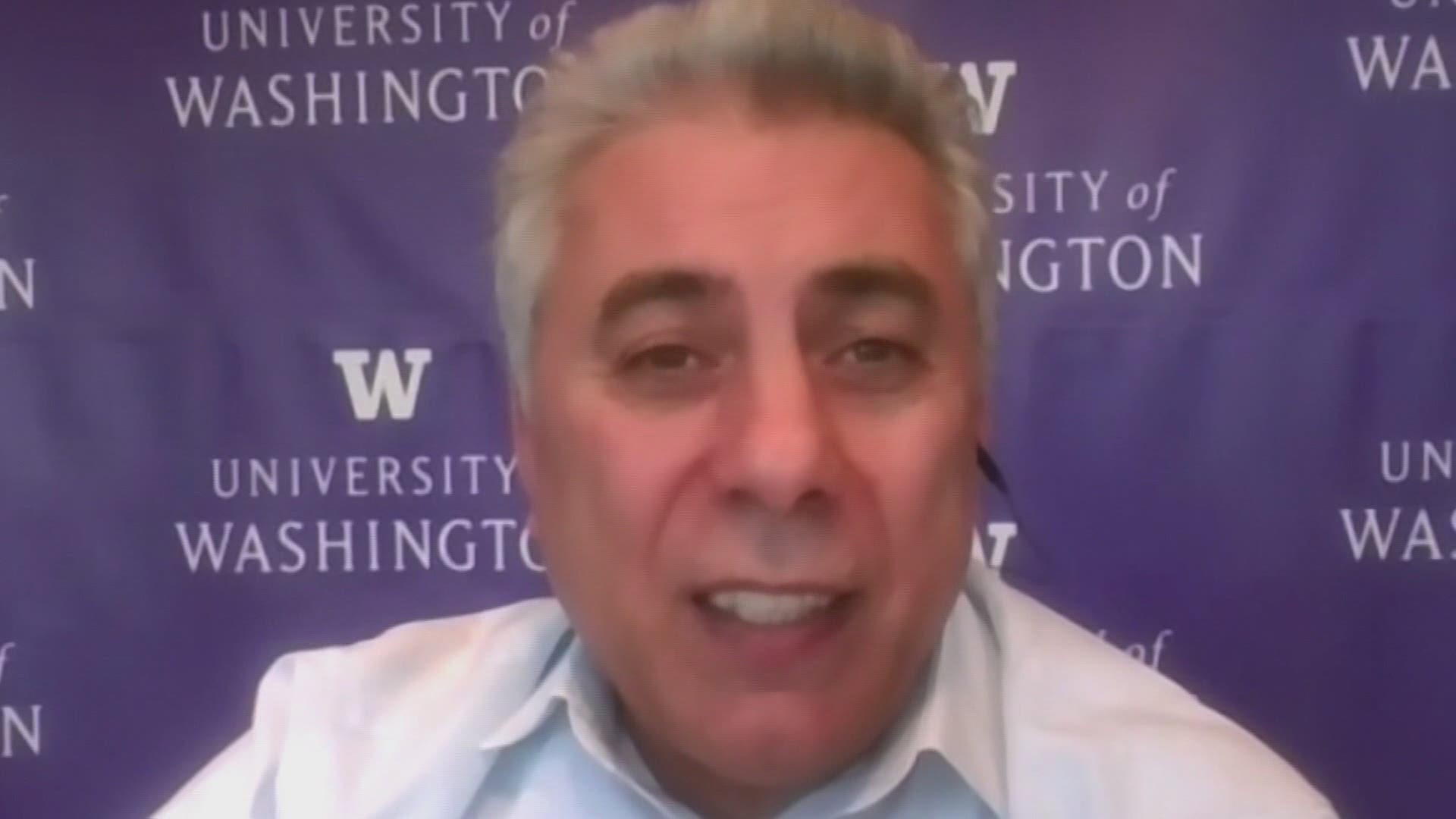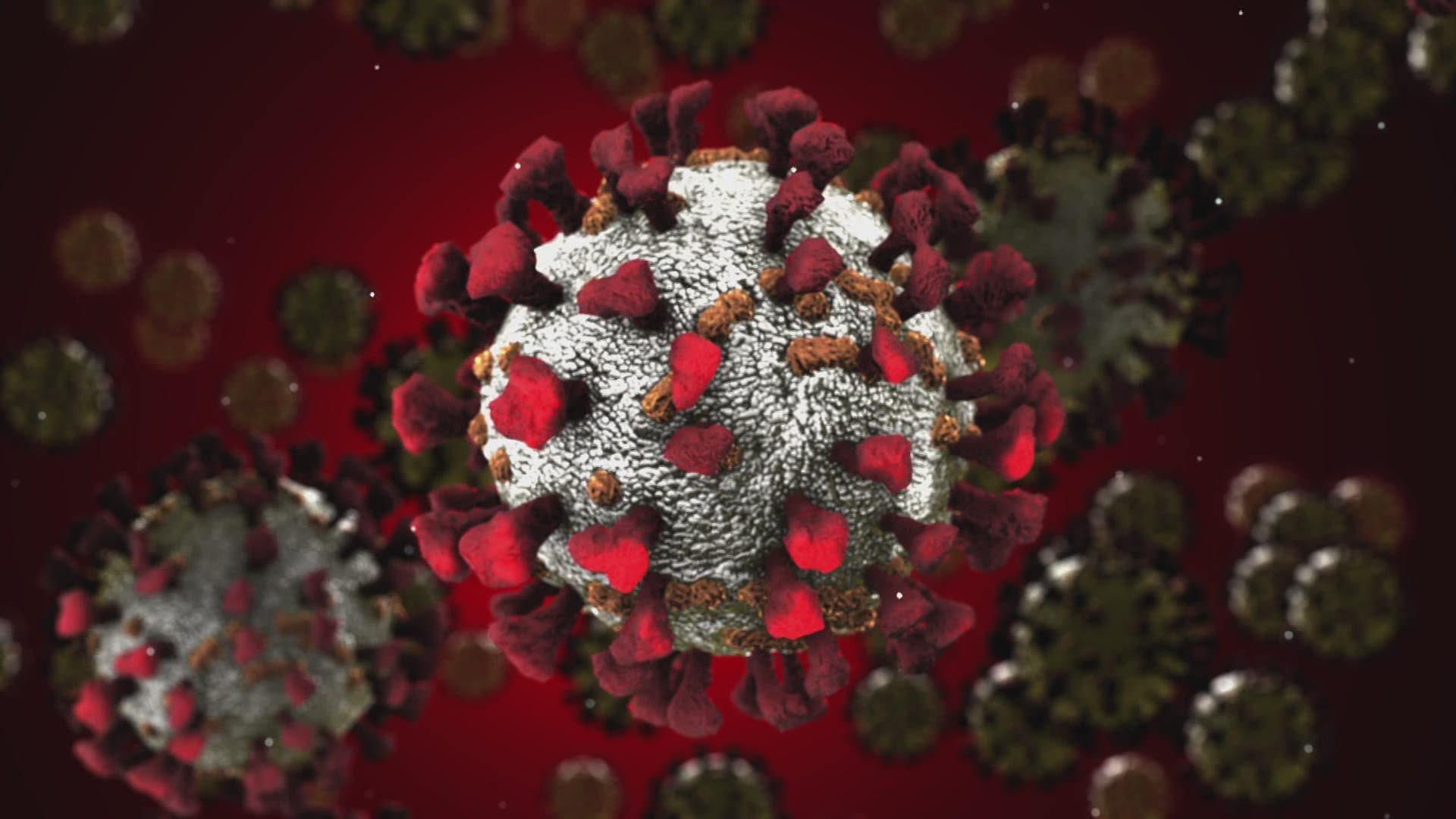SEATTLE — Throughout the pandemic, University of Washington scientists have predicted, with surprising accuracy, the number of COVID-19 infections and deaths in our state and across the nation.
Their models have gotten more accurate as they’ve collected more data from around the world. Click here to see the newest projections from the Institute for Health Metrics and Evaluation (IHME), an independent global health research center at the University of Washington.
UW researcher Dr. Ali Mokdad told KING 5 News that COVID-19 is seasonal. Mokdad said, across the globe, there are more cases in the winter months.
“We’re going to see a rise in cases in winter, but not as [many] cases of mortality, because we will have many Americans vaccinated by that time. They’re not going to die, thanks to the vaccines that are safe and effective. But we’ll see a rise in mortality and cases in winter because of that cyclical nature,” Mokdad said.
Will the virus eventually go away? Or will we experience the coronavirus every winter, much like the flu?
“We have to work on all scenarios and be ready for all of them," Mokdad said. "That’s the best way to be prepared."
He said eliminating the virus will largely depend on our own behaviors. He also predicts there will be more deaths in the U.S. from COVID-19 than the 1918 Influenza Pandemic when roughly 618,000 Americans died.
“Unfortunately yes, we will reach higher than that,” Mokdad said. “Simply because this virus is still circulating at high levels and it’s mutating much faster than anything we have seen before. We have thousands and thousands of mutations that we are able to see right now and detect, so this will be with us for a while… especially this coming winter. Unfortunately, we will hit that level that we hit in 1918.”
However, Mokdad notes the comparison to 1918 is not “apples to apples.”
“Right now, we have better medication, we have better hygiene, we have much better hospitals and much better techniques that prevent mortality. So, in many ways, this virus is much deadlier and dangerous than what we [saw] in 1918.”
Mokdad also revealed how difficult the pandemic has been for him, personally and professionally. On the personal side, two of his cousins died from the virus and an aunt was hospitalized for several weeks. He said many of his family members also lost their jobs. Meanwhile, on the professional side, he said he received threats throughout the pandemic.
“When you come up with a message that says ‘wear a mask’ and everybody is attacking you, saying ‘no, I shouldn’t wear a mask’ -- sometimes you wake up in the morning […] sometimes you wake up and you start crying,” Mokdad said. “We received [..] attacks. you should see my email, we got even mail at home, myself and Chris Murray, our director. People were very hard on us."
So what motivates Mokdad to keep doing his work?
“We owe it to the people that lost their lives, we owe it to them to do it right," said Mokdad. "We owe it to them to rebuild better, we owe it to them not to leave anybody behind."


